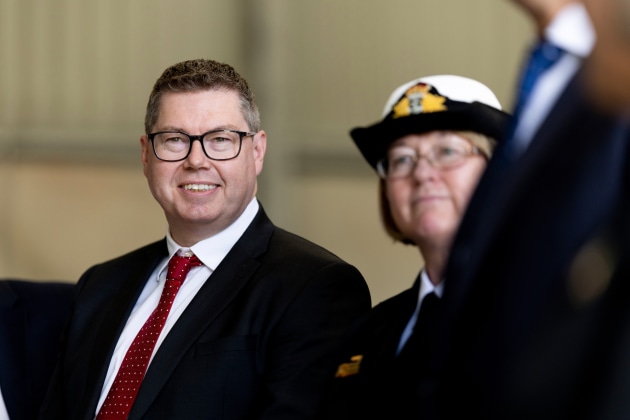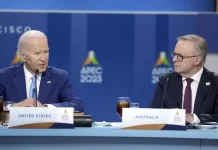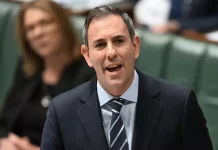The Australian government has told big development banks to “lift their game” in the Pacific amid concerns they are approving poor-quality, cut-price projects only for the budgets to blow out.
Largely funded by governments, development banks provide grants and low-cost loans to developing countries to help them build infrastructure and other projects.
But Australia has issued a veiled threat to cut back funding unless there is “a complete change in attitude from the development banks”.
The international development minister, Pat Conroy, says some bidders have secured contracts by offering an artificially low price, only to “down tools” partway through construction and demand more.
Conroy said he had conveyed his views to both the World Bank and the Asian Development Bank (ADB), urging them to look beyond price and properly take account of the quality of a bid.
He revealed Australia would use its status as one of the biggest funders of the ADB to push for reform.
“We haven’t used our leverage sufficiently in the past and we should use it,” he said in an interview with Guardian Australia.
“We are the second-biggest funder – our view should be respected.”
That is a reference to Australia providing $423m (US$270 million) to the ADB’s key fund in the 2021-24 period, making it the second-largest contributor after Japan.
It is understood negotiations on the next replenishment of the same fund will begin later this year and be finalised by May 2024, with the Australian government planning to use that process to press for reforms.
Australia is also the ADB’s fifth largest shareholder and holds a board position representing 11 members.
Conroy said Australia was “talking on behalf of the Pacific” in urging the development banks to improve their processes.
“To a lesser extent it’s a complaint in south-east Asia, but it’s a very strong complaint in the Pacific, that they are choosing the lowest bid regardless of quality, regardless of whether that price is realistic,” Conroy said.
“So we’re starting to see – and I won’t talk about specific projects – successful bidders downing tools halfway through a project and saying we won’t finish this unless you give us an increased contract.
“They’re bringing workforces – that’s causing social problems. The development banks have had a tremendously positive impact in our region, but they really need to lift their game on this.”
An ADB spokesperson said: “ADB continues to promote and is committed to ensuring quality and value for money in all procurement under ADB-financed projects, with added flexibility in the Pacific, recognising the region’s unique natural conditions.”
The ADB pointed out that it also permitted borrowers to reject bids that were verified as abnormally low.
A World Bank official said it had long encouraged the use of non-price factors in evaluations, but further changes would take effect on 1 September.
“Following extensive internal and external engagement with stakeholders, including with Australia and Pacific Islands members of the World Bank, the Bank is about to launch an additional requirement which will further strengthen the value-for-money approach on which the procurement framework is predicated,” the official said.
Experts say development banks have more than doubled their financing to the Pacific in the past decade – a move that overlaps with an increasing focus on the region by geopolitical rivals China and the U.S.
Meg Keen, the director of the Lowy Institute’s Pacific Islands Programme, said while Australia was right to “lean in” on the issue of quality, there were limits to its influence.
“Australia, Japan and U.S do have leverage in ADB as the largest donors,” she said.
“If you can get the three biggest donors to pull together to say we need change, people are going to listen. But there are still more than 60 diverse members, represented by 12 board directors, that have to agree on reforms.”
As an example of those challenges in reaching consensus, Keen said the last major reforms to the ADB’s procurement practices were signed off in 2017 but only after years of negotiation.
Asked whether Conroy’s comments about fly-in workforces were likely aimed at China, Keen said: “It has been a characteristic of Chinese aid that they bring in their workforce.
“They have been called out for that by western donors and the Pacific countries themselves. There has been some improvement, but not yet enough. We should keep pushing the issue of encouraging local workforce development.”
Some within the Australian government also believe an over-emphasis on price is discouraging potential bidders from competing for projects in the Pacific.
In March, a Chinese state company won a major contract to redevelop the port in Honiara, the capital of Solomon Islands, in a broader US$170m project funded by the ADB.
The China Civil Engineering Construction Company was reported to be the only bidder.
SOURCE: THE GUARDIAN/PACNEWS















